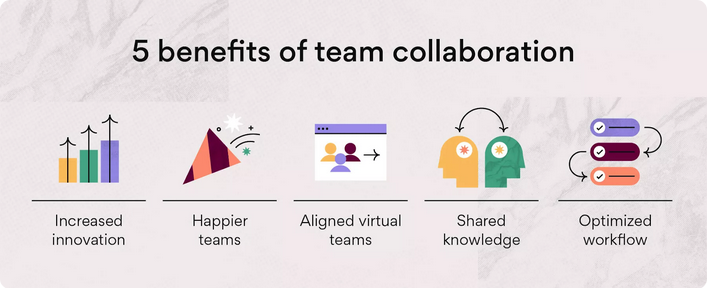In today’s fast-paced business world, startups and small to medium-sized businesses (SMEs) are continuously seeking methods to improve their operations, cut expenses, and gain a competitive advantage. Cloud computing has emerged as a game changer for these companies, offering scalable, cost-effective solutions that foster growth and innovation.
Cloud-based services provide an unmatched opportunity for Indian startups and SMEs to streamline operations, boost collaboration, and scale without having to manage complex infrastructure. Specializes in assisting organizations to fully realize their potential by leveraging the power of the cloud. In this blog, we look at the primary benefits of cloud computing for startups and SMEs in India, with an emphasis on cost reductions, agility, and real-time communication.
1. Cost Savings: Pay-as-You-Go Model
One of the most compelling reasons for startups and SMEs to use cloud computing is the cost savings it provides. Traditional on-site facilities incur large upfront expenditures for hardware, software, and upkeep. Cloud computing, on the other hand, follows a pay-as-you-go model, allowing organizations to pay only for the resources they utilize.
Key cost-saving advantages:
- No upfront hardware costs—the cloud provider controls the infrastructure.
- Scalable pricing—pay only for the services you need as your business expands.
- Lower IT maintenance costs—cloud providers handle updates, security, and management.

For companies with little cash flow, the option to cut capital expenditures and transition to an operational expenditure model is critical for preserving flexibility and liquidity.
2. Agility: Scale up or down instantly.
Cloud computing provides unparalleled agility, enabling organizations to scale their IT resources up or down based on current demand. Whether dealing with an increase in traffic, hiring additional personnel, or introducing a new product, the cloud allows businesses to adjust fast and efficiently.
Key advantages of cloud agility:
- On-demand resources—instantly scale processing power, storage, and bandwidth.
- Access cloud services from anywhere, anytime, and on any device.
- Pre-built tools and platforms enable speedier application deployment.
This agility is critical for Indian SMEs and startups to remain competitive in an ever-changing market where rapid innovation and response times are essential for success.
3. Real-Time Collaboration: Streamlined Teamwork Across Locations
Cloud computing improves real-time collaboration by allowing teams to work seamlessly regardless of location. This is especially crucial for startups and SMEs, who may employ remote workers, freelancers, or even international partners.
Collaboration tools include
- Cloud-based document sharing (Google Workspace and Microsoft 365)
- Project management software (Trello, Asana, Monday.com)
- Real-time communication (Slack, Zoom, and Microsoft Teams).

Cloud-based solutions enable team members to edit papers simultaneously, hold virtual meetings, and securely access essential information from anywhere. This kind of collaboration boosts productivity, decreases communication delays, and guarantees that everyone is on the same page about the company’s goals.
4. Security and Reliability: Trusted Cloud Providers
When it comes to data security, startups and SMEs regularly lack the capacity to implement complete security controls on their own. Cloud providers provide enterprise-level security and reliability, making it easier for businesses to protect their data and maintain uptime.
Security advantages include
- Advanced encryption protects critical data.
- To prevent data loss, make regular backups.
- Automated security patches and upgrades to fix problems
- Disaster recovery solutions for business continuity
Cloud services are built with security in mind, providing strong protection that is frequently more dependable than what a small organization could adopt on its own.
5. Cost-effective Software Solutions: Access to Enterprise Tools.
Cloud-based software solutions provide startups and SMEs with strong corporate tools without the high license and infrastructure expenses associated with traditional software. Cloud providers offer a wide range of business applications, including CRM systems, accounting, analytics, and marketing tools.
Popular cloud-based software includes
- Salesforce for CRM and Customer Service
- Quick Books Online: Accounting & Bookkeeping
- Hub Spot for marketing automation and inbound marketing.
- Zoho Suite: Collaboration, Project Management, and Business Operations
These solutions enable startups and SMEs to operate more efficiently and competitively by utilizing the same software as larger firms at a fraction of the cost.
6. Collaborate with Partners and Clients: Share insights instantly.
Cloud computing allows businesses to exchange data and insights with partners and clients in real time. Startups and SMEs can better interact with external stakeholders using secure, cloud-based data sharing tools, making it easier to establish and foster long-term connections.
For example, project updates, product roadmaps, and sales data may be shared in real time, ensuring that all parties are on the same page and can make data-driven choices without delay.
7. Mobility and Flexibility: Empowering a Remote Workforce.
As the globe shifts toward remote work, cloud computing delivers the mobility and flexibility that modern organizations want. Employees may access the company’s data, tools, and apps from anywhere in the world, allowing them to work while traveling or at home.

Mobility benefits:
- Access from any device, including laptops, cellphones, and tablets.
- There is no need for VPNs or sophisticated remote access setups.
- Flexible working alternatives lead to higher employee satisfaction.
For Indian startups and SMEs that rely on remote teams or a flexible workforce, the cloud is an ideal solution for ensuring business continuity and allowing employees to remain productive regardless of location.
Conclusion:
Cloud computing is the future of startups and SMEs in India.
By 2025, the cloud will no longer be an optional solution for startups and SMEs but rather a commercial requirement. Cloud computing may help your organization expand and thrive in an increasingly digital world by cutting expenses, enhancing agility, enabling real-time communication, and providing solid security.
By properly integrating cloud technology, Indian startups and SMEs can open up new prospects, increase efficiency, and preserve a competitive advantage. From cloud migration and infrastructure optimization to seamless integration of cloud-based services, expert advice enables a smooth and efficient move to a more flexible, scalable, and cost-effective digital landscape.

